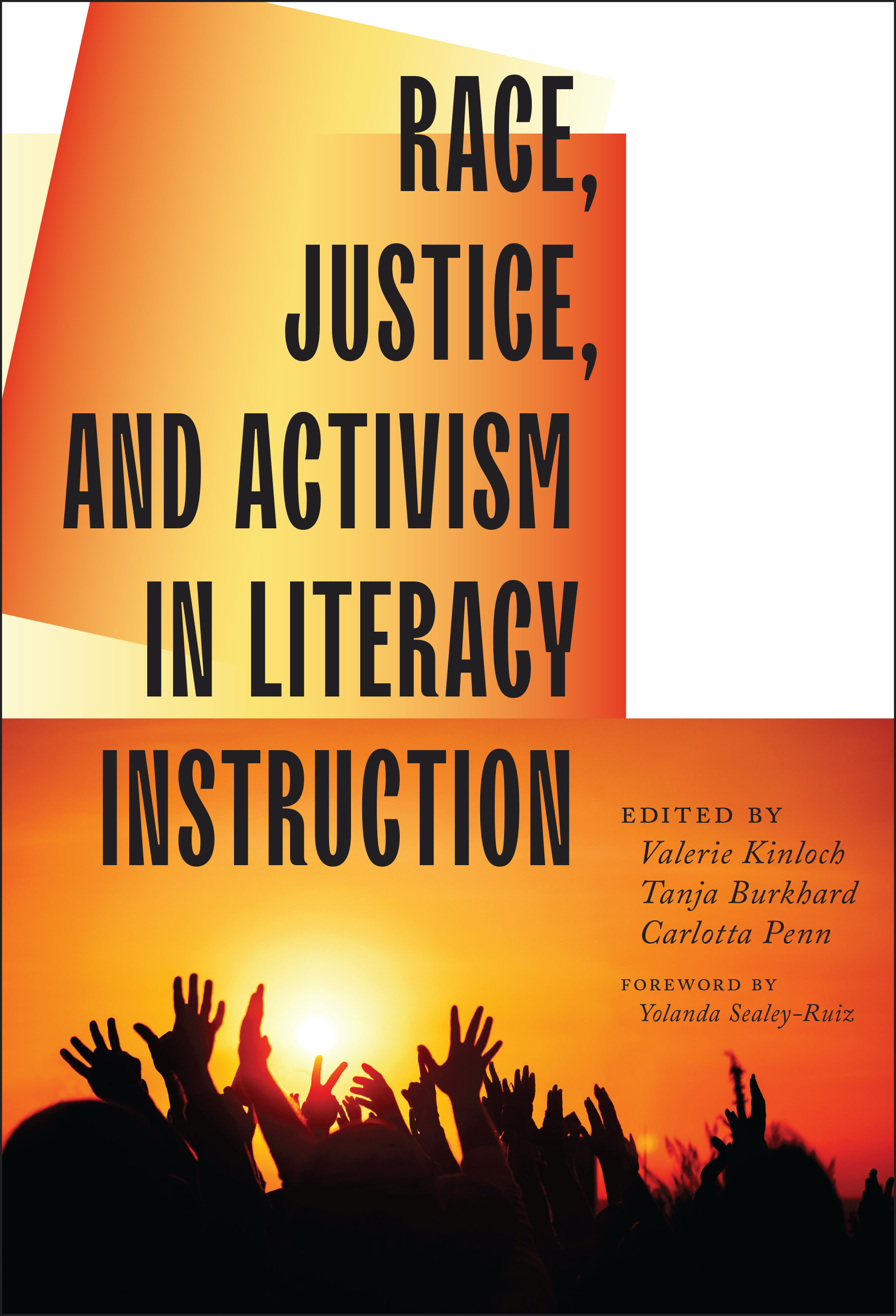reviewed by Nicole Pyle – May 11, 2020
 Title: Race, Justice, and Activism in Literacy Instruction
Title: Race, Justice, and Activism in Literacy Instruction
Author(s): Valerie Kinloch, Tanja Burkhard, & Carlotta Penn
Publisher: Teachers College Press, New York
ISBN: 0807763217, Pages: 240, Year: 2019
In Race, Justice, and Activism in Literacy Instruction, editors Valerie Kinloch, Tanja Burkhard, and Carlotta Penn share the history of literacy from literacy scholars’ stories and social justice research. Educators reading this book will learn of perspectives that can be incorporated into literacy education to engage youth in activism toward justice. Scholars’, educators’, and students’ voices confront historical inequities in school-based literacy instruction that neglect to explore race, power, and identity. Poetry is showcased throughout and at the end of both parts of the book. Part I of the book focuses on the actions of literacy educators’ influence on youth’s learning, love, and liberation. Part II of the book invites educators to consider how students and teachers co-construct knowledge and engage in literacy and language learning. Each chapter concludes with reflective questions of educator accountability and classroom practices related to race, justice, and activism.
The scholars’ voices represented in this book advocate for literacy education approaches to reflect culturally responsive pedagogy and anti-racism. In the Foreword, Yolanda Sealey-Ruíz describes that the content in this book reminds “us why literacy education remains a modern-day battlefield for justice” (p. x). The notion of the battlefield is revisited in literacy educators’ preparation of students to use writing practices to navigate discrimination and defend themselves. Literacy educators have a responsibility to “provide another weapon in the arsenal for linguistically and racially minoritized students” (p. 73). The use of language, through oral or written expression, is viewed as a method for activism and actionist work. Literacy educators have a grand purpose to move beyond silence to activism. Students and teachers can engage in a dialogical praxis that empowers youth’s voice and lead to transformation. Thus, literacy leaders may be faced to fight battles for policies and practices that represent the very students in their classrooms.
Read the full review at Teachers College Record
